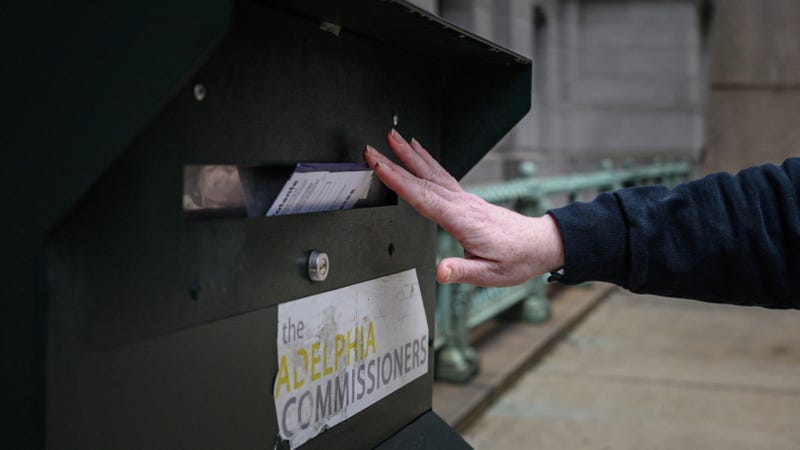
HARRISBURG, Pa. (KYW Newsradio) — Legislation that would significantly change Pennsylvania’s no-excuse mail-in voting took a critical step in the state House, clearing the State Government Committee on a party-line vote.
The bill would give counties two weeks prior to Election Day to open envelopes and prepare ballots to be scanned. Current law bars that work from starting before 7 a.m. on Election Day, which county elections officials say is causing unnecessary delay and excessive strain on workers.
Philadelphia Democrat Malcolm Kenyatta says no votes would be tabulated before polls open, and the changes are driven by county elections officials.
“When they're asking for our help to clarify the ways in which they can do their work to streamline that process — I think, us in this building, I think we ought to listen,” Kenyatta said.
Northwestern Pennsylvania Republican Brad Roae pushed back, arguing the 63 counties that accepted state grants to help process ballots were able to have vote tallies in a reasonable time following the 2022 election.
“I look at this legislation as being a solution in search of a problem,” Roae said.
But Lehigh County Democrat Josh Siegel disagreed: “Pre-canvassing is critical to making sure that we do not fatigue and exhaust our election workers. And we do not burn out some of our most seasoned and veteran and most experienced election administrators.”
The bill would also allow ballots returned without the privacy envelope to be counted — which took up a big chunk of the 40-minute debate.
Several Republicans, including Louis Schmidt of Blair County, argued that would run afoul of the Pennsylvania Constitution. Schmidt pointed to the line saying citizens can vote by any method prescribed by law as long as secrecy can be preserved.
“It would seem to me that the language of this bill, as amended, would seem to move voter secrecy from the digital mandatory language of our Constitution, to the analog language of the bill as amended, and I don't see how such language can pass constitutional muster,” Schmidt said.
But Kenyatta said using a privacy envelope should be up to the voter.
“Just as sacred as protecting your vote is, and the secrecy of your vote — having that vote counted in the first place seems like a pretty important part of the process.”


